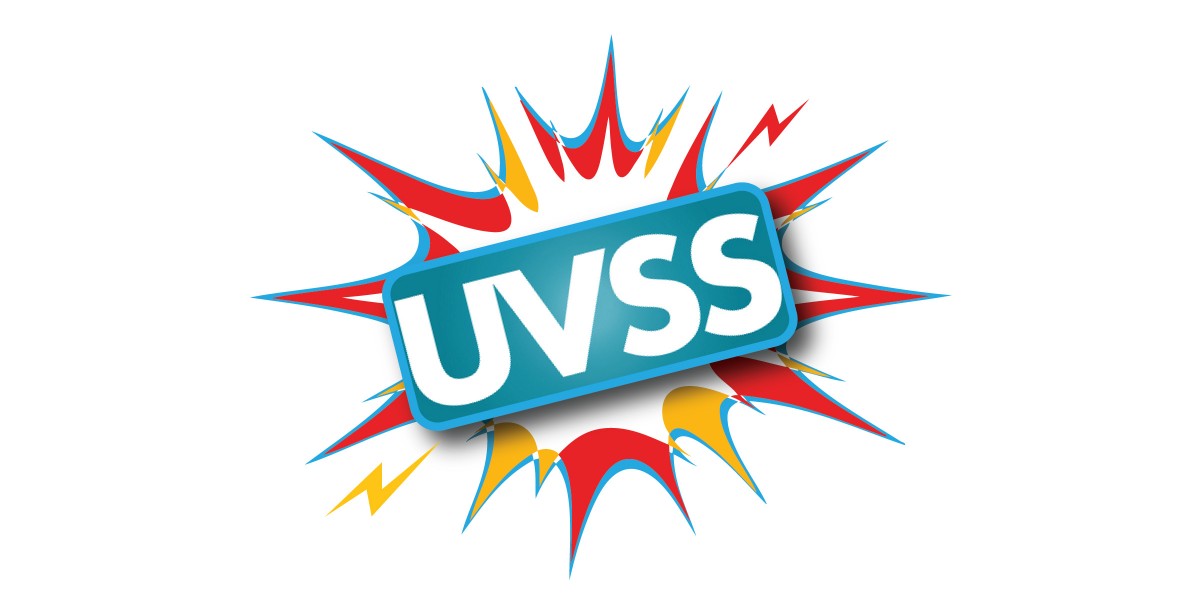Proponents hope to secure votes to establish a semesterly OER fee, end PIRG fee

Every time UVSS election season rolls around, campus is littered with a plethora of colourful posters and chalk graffiti as eligible students set their sights on one of the contested spots on the UVSS board. This year, the fall electoral event will give students a chance to vote on three referendum questions — without the normal milieu of in-person, on-campus campaigning.
There was also a director-at-large position up for byelection, due to the resignation of one of the directors-at-large elected in the spring. However, the only person to nominate themselves was Mariel Hernandez, who was therefore acclaimed. Hernandez did not respond to the Martlet’s interview request by the time of publication. Another director-at-large resigned on Oct. 19, so one seat will still be empty around the board’s virtual table.
Voting in the fall electoral event will take place online from Nov. 4-6. Campaigning will be entirely online, due to COVID-19. In order for the referendums to pass, they must get a majority of votes in their favour and reach 15 per cent voter turnout. In the spring elections, only 14.8 per cent of students cast their ballots.
Open educational resources (OERs)
The OER referendum comes as part of the UVSS campaign #TextbookBroke, which lobbies the government and university to create more funding for accessible educational resources.
The OER referendum is the same one that students voted on in 2019-2020. If it passes, the UVSS will add $1.50 onto full-time students’ semesterly fees, and $0.75 onto part-time students’ to add to UVic’s OER grants fund.
Proponents hope that with an OER fee there would be a decrease, and eventual elimination, of the cost of textbooks for students. Jonathan Granirer, last year’s director of outreach and university relations, says it would be UVic students investing in themselves.
“If we spend a dollar creating OERs, we get several dollars back,” he said. “We can essentially invest in ourselves: spend $1.50 now and get free textbooks later.”
There was a vote on the OER fee in March, but it did not gain the number of votes that was required for it to pass — it needed 144 more votes to meet quorum. Granirer says, however, that he plans to increase support this time around.
“I am going to be doing a lot of classroom talks this time around,” he said. “I’m also hoping to have the support of other people actually on the UVSS board. I know a lot of them campaigned on what we’re doing now, which is increasing the usage of open educational resources.”
With more UVSS members spreading awareness this time around, Granirer hopes that there will be a more desirable outcome.
Public Interest Research Group (PIRG)
The PIRG referendum is happening because the Vancouver Island Public Interest Research Group (VIPIRG) ended their relationship with the UVSS in 2019. Every semester since, the UVSS has been required by their bylaws to collect $3.00 in PIRG fees for full-time students and $1.50 for part-time students despite no PIRG being present on campus.
This fee collection totalled $128 848.17, which is currently being held in trust. To suspend fee collection, the UVSS is required to gain approval from students in a referendum.
This comes after the UVSS tried to discontinue VIPIRG’s fees in a contentious referendum. The Chief Electoral Officer during the 2019 election recommended the board redo the referendum because of alleged violations of the electoral policy. Shortly afterwards, VIPIRG left the UVSS.
“We’re holding this [referendum] again to see if students would like to be done with it and cut this from the fees,” said Evan Guildford, a UVSS director-at-large and the PIRG referendum proponent.
The first referendum question relates to these funds, and asks if students are okay with the UVSS no longer collecting this fee for a PIRG that doesn’t exist.
Last year, the UVSS looked at proposals for a new PIRG. Although one group came forward with a pitch, they were denied because they wanted to be a sepaerate group not affiliated with the UVSS.
The second question asks about the money already collected for a PIRG. If passed, this referendum would allow the money, which is currently in a trust, to be used for a scholarship fund and the general operating fund. Guildford said he is “confident” that the university will delegate the scholarship fund in students’ best interests.
When asked how he planned to distribute information and increase voter turnout, Guildford encouraged students to come to the UVSS Annual General Meeting on Oct. 29 and ask the board their questions.







